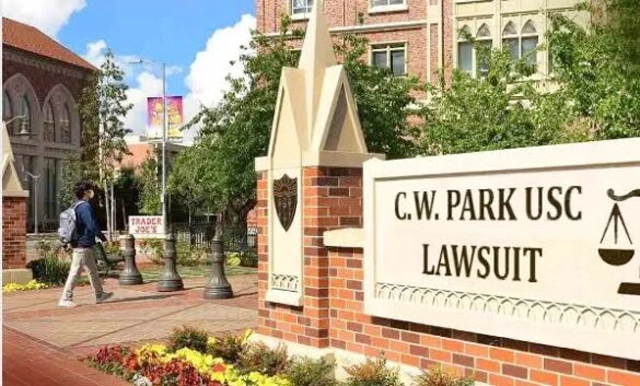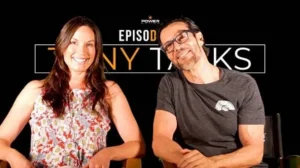The lawsuit involving Dr. C.W. Park, a distinguished marketing professor at the University of Southern California (USC), has drawn significant attention due to its implications for academic freedom, employment rights, and institutional governance. This blog post aims to provide a detailed yet straightforward explanation of the lawsuit, its background, key issues, and broader impact.
Background of Dr. C.W. Park
Dr. C.W. Park is a renowned scholar in the field of marketing, particularly known for his work on brand management and consumer behavior. With a prolific academic career spanning several decades, Dr. Park has made substantial contributions to both academic literature and practical applications in marketing. He has held a prestigious position at USC’s Marshall School of Business, where he has been influential in shaping the curriculum and mentoring numerous students.
The Genesis of the Lawsuit
The lawsuit filed by Dr. Park against USC primarily revolves around allegations of wrongful termination, discrimination, and breach of contract. To understand the roots of the dispute, it’s essential to consider the sequence of events and the key allegations made by Dr. Park.
Allegations of Wrongful Termination
Dr. Park claims that his termination from USC was unjust and violated the terms of his employment contract. He argues that the university did not follow due process and failed to provide a valid reason for his dismissal. According to Dr. Park, his termination was sudden and unexpected, leading to significant personal and professional distress.
Claims of Discrimination
In his lawsuit, Dr. Park also alleges that his termination was influenced by discriminatory practices. He contends that he faced bias based on his age, ethnicity, and academic views. Dr. Park, who is of Korean descent and an older faculty member, believes that these factors played a role in the decision to terminate his employment. Such allegations of discrimination, if proven, could have severe implications for USC’s policies and reputation.
Breach of Contract
Another critical aspect of the lawsuit is the accusation of breach of contract. Dr. Park asserts that USC failed to honor the terms of his employment agreement. He argues that the university’s actions violated the contractual obligations related to job security, academic freedom, and procedural fairness. This aspect of the lawsuit underscores the importance of clear and enforceable employment contracts in academic institutions.
The Legal Battle
The legal proceedings in the C.W. Park lawsuit involve multiple stages, including the filing of the complaint, responses from USC, pre-trial motions, and potentially, a trial. Let’s break down these stages to understand the legal process better.
Filing of the Complaint
Dr. Park initiated the lawsuit by filing a formal complaint with the court. This document outlines his allegations against USC, including the claims of wrongful termination, discrimination, and breach of contract. The complaint serves as the foundation of the legal case and sets the stage for further proceedings.
USC’s Response
In response to Dr. Park’s complaint, USC filed legal documents refuting the allegations. The university’s defense may include arguments that Dr. Park’s termination was justified based on performance issues or other legitimate reasons. USC might also challenge the claims of discrimination and breach of contract, seeking to prove that it acted within its rights as an employer.
Pre-Trial Motions
Before the case goes to trial, both parties may file various pre-trial motions. These motions can address procedural matters, such as requests for evidence, witness lists, and specific legal arguments. Pre-trial motions are crucial in shaping the direction of the case and determining what evidence will be admissible in court.
Potential Trial
If the case proceeds to trial, both Dr. Park and USC will present their arguments before a judge or jury. The trial will involve the examination of witnesses, presentation of evidence, and legal arguments from both sides. The outcome of the trial will depend on the strength of the evidence and the persuasiveness of the legal arguments presented by each party.
Key Issues and Implications
The C.W. Park lawsuit raises several important issues that extend beyond the specifics of the case. These issues have broader implications for academic institutions, employment practices, and the protection of individual rights.
Academic Freedom
One of the central themes in the lawsuit is the concept of academic freedom. Dr. Park argues that his termination was, in part, an attempt to stifle his academic views and research. Academic freedom is a fundamental principle that allows scholars to pursue research and express ideas without fear of retribution. The outcome of this case could impact how academic freedom is protected and upheld in universities.
Employment Rights
The lawsuit also highlights the importance of employment rights for faculty members. Dr. Park’s claims of wrongful termination and breach of contract underscore the need for clear and fair employment agreements. Universities must ensure that their policies and practices align with legal standards and respect the rights of their employees.
Institutional Governance
The case brings attention to the governance structures within academic institutions. How decisions are made regarding faculty employment, disciplinary actions, and contractual obligations are crucial aspects of university administration. The lawsuit may prompt universities to review and refine their governance practices to ensure transparency, accountability, and fairness.
Broader Impact on Higher Education
The outcome of the C.W. Park lawsuit could have far-reaching consequences for higher education institutions across the country. Here are some potential impacts:
Policy Reforms
If Dr. Park’s claims are upheld, it could lead to policy reforms within universities. Institutions may revise their employment contracts, disciplinary procedures, and anti-discrimination policies to prevent similar disputes in the future. Clearer guidelines and stronger protections for faculty members could emerge as a result.
Legal Precedents
The case could set legal precedents regarding wrongful termination, discrimination, and breach of contract in academic settings. Courts may use the outcome of this lawsuit as a reference in future cases involving similar issues. This could influence how legal disputes between faculty members and universities are resolved.
Academic Culture
The lawsuit may also impact the culture within academic institutions. Universities may become more cautious in their decision-making processes, ensuring that actions taken against faculty members are well-justified and compliant with legal standards. Additionally, faculty members may feel more empowered to assert their rights and seek legal recourse when facing unjust treatment.
Conclusion
The lawsuit involving Dr. C.W. Park and USC is a complex and multifaceted legal battle with significant implications for academia. At its core, the case revolves around allegations of wrongful termination, discrimination, and breach of contract. The outcome of this lawsuit could influence academic freedom, employment rights, and institutional governance in universities across the nation.
As the legal proceedings unfold, the higher education community will be closely watching the developments. Regardless of the final verdict, the C.W. Park lawsuit serves as a reminder of the importance of upholding principles of fairness, transparency, and respect for individual rights within academic institutions. The case underscores the need for universities to continually review and improve their policies and practices to ensure a just and equitable environment for all faculty members.




